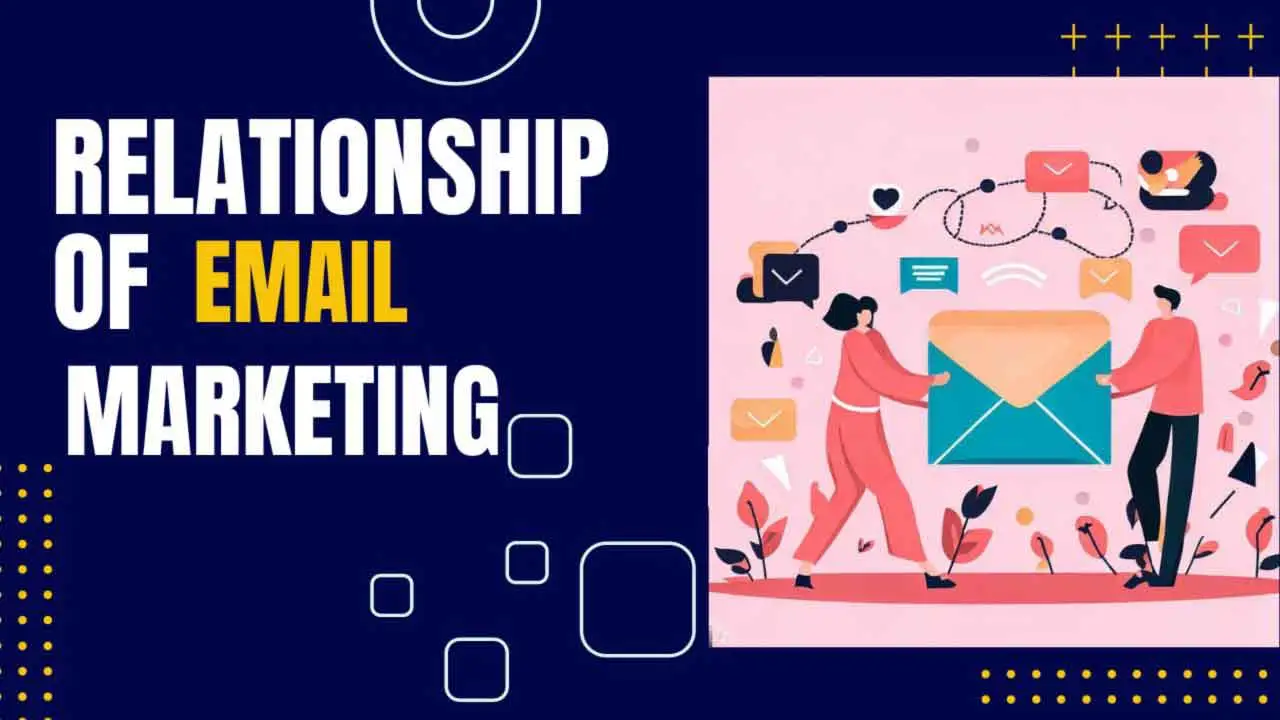What is a Relationship Email? and use to Relationship Email in Marketing

Welcome to the world of email marketing, where building relationships with your audience is key to success. In this digital age, connecting with customers on a personal level through emails can make all the difference in driving engagement and ultimately boosting conversions.
Today, we delve into relationship emails – what they are, why they matter, and how you can leverage them to strengthen connections with your subscribers. So sit back, grab a cup of coffee, and let’s explore the power of relationship emails together!
With Email Marketing Build Relationship
Relationship emails are a fundamental component of any successful email marketing strategy. Unlike promotional or transactional emails, what is a relationship email? focus on cultivating a connection with your audience rather than pushing for immediate sales. These emails aim to establish trust, build rapport, and foster long-term loyalty among subscribers.
One key aspect of relationship emails is their personalised nature. By tailoring content to the specific interests and preferences of individual recipients, you can create a more meaningful and engaging experience for them. This personalization not only increases open rates but also encourages interaction and feedback from your audience.

Moreover, relationship emails often prioritize providing value to subscribers over promoting products or services directly. Whether it’s sharing informative content, offering exclusive discounts, or simply expressing gratitude for their support, these emails aim to enrich the subscriber experience and strengthen the bond between the brand and the customer.
What is a Relationship Email?
Relationship emails are a crucial component of any successful email marketing strategy. These types of emails focus on building and nurturing connections with your audience, rather than solely promoting products or services.
Relationship emails aim to engage subscribers, provide value, and establish trust over time. They help in creating a loyal customer base by fostering meaningful interactions and personalized communication.
These emails often include content that is relevant to the recipient’s interests, such as educational resources, industry updates, or exclusive offers. By delivering valuable information consistently, relationship emails can strengthen the bond between a business and its subscribers.
In essence, relationship emails serve as a way to humanize your brand and connect with your audience on a more personal level. They go beyond simply selling products or services by focusing on building long-lasting relationships with customers.
Key Elements of a Relationship Email
When crafting a relationship email, authenticity is key. Your message should resonate with the recipient and make them feel valued. Personalization plays a crucial role in building connections through email marketing. Addressing recipients by their names and tailoring content to their interests can significantly increase engagement.
Another essential element is relevance. Ensure that your emails are timely and provide value to the reader. Whether it’s sharing informative content, exclusive offers, or personalized recommendations, each email should offer something meaningful to the recipient.
Consistency is vital for nurturing relationships through email communication. Establishing a regular cadence helps keep your brand top-of-mind for subscribers without overwhelming them with too many messages. Additionally, maintaining a consistent tone and branding across all emails reinforces trust and familiarity with your audience.
Fostering genuine connections through relationship emails requires empathy, creativity, and strategic planning. By incorporating these key elements into your email campaigns, you can cultivate lasting relationships with your subscribers.
Benefits of Using Relationship Emails
When it comes to email marketing, incorporating relationship emails into your strategy can offer a wide array of benefits. Relationship emails help in building trust and credibility with your audience. By providing valuable and personalized content, you can nurture stronger connections with your subscribers.
Moreover, utilizing relationship emails allows you to engage with your audience on a deeper level. Whether through storytelling, exclusive offers, or helpful tips, these emails create a sense of loyalty among subscribers. This increased engagement often leads to higher open rates and click-through rates for your campaigns.
Additionally, relationship emails provide an opportunity for feedback and interaction. Encouraging recipients to reply or participate in surveys can help you gather valuable insights that can further enhance your email marketing efforts. By focusing on building relationships through email communication, you can foster long-term customer loyalty and drive business growth.
Strategies for Creating Effective Relationship Emails
Crafting effective relationship emails requires a thoughtful approach to engaging and nurturing your audience. Start by understanding your subscribers’ preferences and segmenting your list based on their interests. Personalization is key – address recipients by name and tailor content to their needs.
Focus on providing value in every email you send, whether it’s through helpful tips, exclusive offers, or relevant updates. Keep the design clean and visually appealing to enhance readability and engagement. Emphasize clear call-to-action buttons that guide readers on the desired next steps.
Experiment with different subject lines to increase open rates, and test different sending times to optimize engagement levels. Monitor performance metrics like open rates, click-through rates, and conversions to continually refine your email strategy for better results.
Long-Term Business Relationship Email
Building long-term business relationships through email marketing is a strategic approach that focuses on fostering trust and loyalty with your audience. These relationship emails go beyond one-time promotions or sales pitches; they aim to create lasting connections with customers.
To cultivate these relationships, businesses need to personalize their emails based on customer preferences and behaviours. By delivering relevant content and offers, you can show your audience that you understand their needs and value their engagement.
Consistency is key to maintaining long-term business relationships via email. Regular communication helps keep your brand top of mind and reinforces the connection you have built with your subscribers over time.
Incorporating feedback loops into your email strategy enables you to gather insights from your audience, allowing you to tailor future communications to better meet their expectations and strengthen the bond between them and your brand.
Relational Email Examples
Relational email examples showcase how businesses can nurture connections with their audience through personalized and engaging content. A welcome series email introducing new subscribers to your brand’s story and values sets the tone for a strong relationship.
An exclusive offer or promotion tailored to specific customer segments demonstrates that you understand their preferences and interests. Regular newsletters providing valuable information, updates, and tips keep subscribers engaged and informed about your products or services.
Personalized birthday emails offering special discounts or gifts make customers feel appreciated and valued on their special day. Feedback requests encourage interaction while showing that you value their opinions and are committed to improving their experience.
By incorporating these relational email examples into your marketing strategy, you can build lasting relationships with your audience based on trust, relevance, and genuine connection.
FAQs
Conclusion
In Email Marketing, building and nurturing relationships with your audience through relationship emails is crucial for long-term success. By understanding what relationship emails are, incorporating key elements, and implementing effective strategies, you can enhance customer engagement and loyalty.
Remember to personalize your emails, provide value to your subscribers, maintain consistency in communication, and always seek to establish trust. Building a strong foundation of relationships with your audience will not only increase open rates and click-through rates but also lead to higher conversion rates and brand advocacy.






